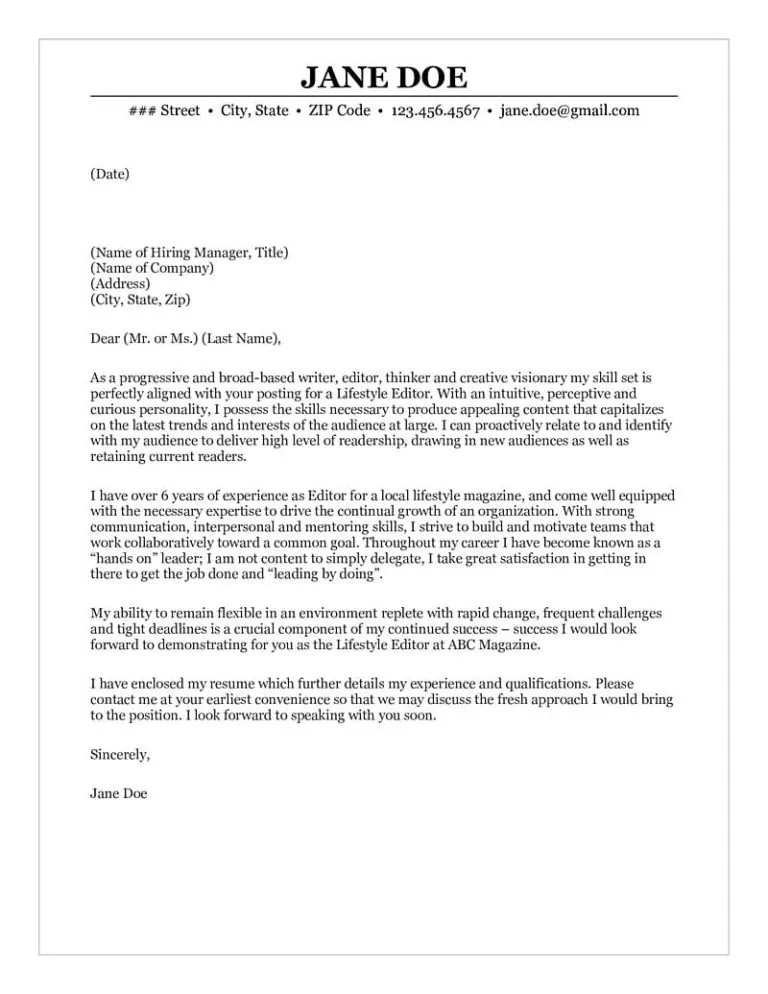Crafting the Perfect Writer Job Cover Letter
Landing a writer job often hinges on the strength of your cover letter. It’s your first opportunity to impress a potential employer and showcase your skills, experience, and personality. A well-crafted cover letter isn’t just a formality; it’s a powerful marketing tool that can significantly increase your chances of getting an interview. This guide provides 101 top tips for creating a cover letter that grabs attention and gets results. We’ll explore everything from understanding the purpose of a cover letter to avoiding common pitfalls, ensuring your application stands out from the competition.
Understanding the Purpose of a Cover Letter
The primary purpose of a cover letter is to introduce yourself and explain why you’re the perfect fit for the writer job. It allows you to elaborate on your resume, highlighting specific skills and experiences relevant to the role. Think of it as a personalized sales pitch that demonstrates your enthusiasm and understanding of the company’s needs. It should complement your resume, not simply reiterate it. A well-written cover letter demonstrates your communication skills, attention to detail, and professionalism, all crucial qualities for a writer.
Highlighting Your Writing Skills
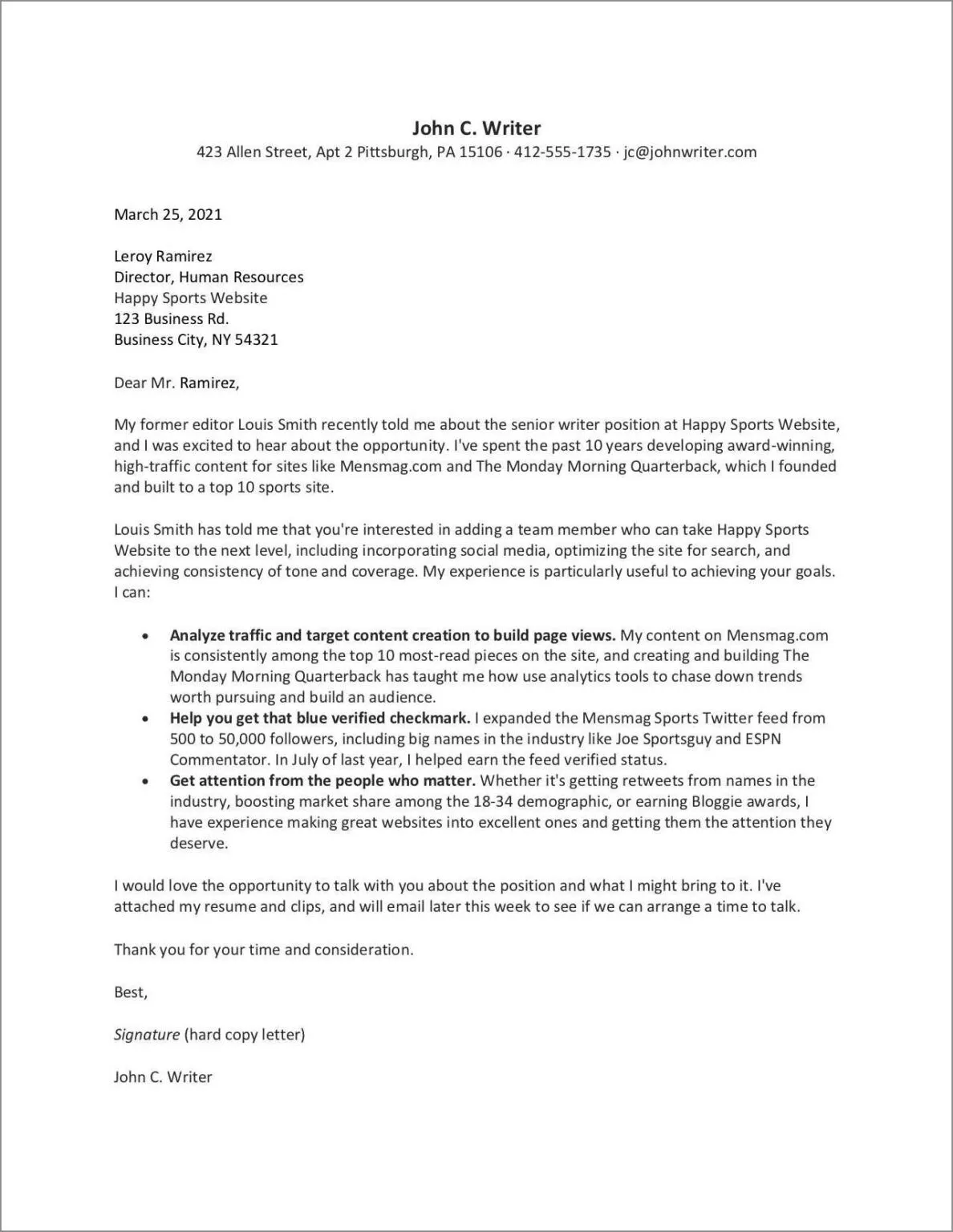
As a writer, your writing skills are your most valuable asset. Your cover letter is the perfect place to showcase them. Instead of just stating you’re a good writer, demonstrate it. Use strong, concise language, varied sentence structures, and a clear, engaging tone. Analyze the job description for keywords related to the type of writing required (e.g., technical writing, creative writing, content writing) and tailor your language accordingly. Provide brief examples of your work, such as a link to your online portfolio or a description of a successful writing project. Ensure your grammar, spelling, and punctuation are impeccable, as these are the first things a potential employer will notice.
Showcasing Relevant Experience
While your writing skills are important, your experience adds credibility. Focus on the experience most relevant to the specific writer job you’re applying for. Quantify your achievements whenever possible. Instead of saying “I wrote articles,” say “I wrote over 50 articles per month, increasing website traffic by 15%.” If you’re a recent graduate or have limited professional experience, highlight relevant coursework, internships, or personal projects. Mention any specific software or tools you’re proficient in, such as content management systems (CMS), SEO tools, or graphic design software. Briefly explain your role and accomplishments in each position to provide a clear picture of your capabilities.
Tailoring Your Cover Letter for Each Job
Generic cover letters are easily identifiable and often end up in the rejection pile. Customize your cover letter for each job application. This demonstrates that you’ve taken the time to understand the specific requirements of the role and the company’s values. This level of personalization shows genuine interest and initiative. This is a crucial step in the job application process. Consider the company’s mission, values, and the specific needs of the role to make your cover letter shine.
Researching the Company and Role

Before writing your cover letter, thoroughly research the company and the specific writer job. Visit their website, read their blog, and explore their social media channels. Understand their products, services, target audience, and brand voice. Identify the key skills and qualifications they’re looking for in a writer. This research will help you tailor your letter to their specific needs and demonstrate your genuine interest. Addressing the hiring manager by name, if possible, also shows you’ve done your homework and are serious about the opportunity.
Customizing Your Letter
Once you’ve researched the company and the role, customize your cover letter. Highlight the skills and experiences that align with the job description. Use keywords from the job posting naturally throughout your letter. Explain why you’re interested in this specific opportunity and what you can bring to the company. Show how your skills and experience match their needs. Explain how you can contribute to their success. Personalize the letter by referencing specific projects, articles, or initiatives that resonate with you, further demonstrating your understanding and interest.
Structuring Your Cover Letter for Maximum Impact
A well-structured cover letter is easy to read and makes a positive impression. Use a clear, logical format that guides the reader through your qualifications and enthusiasm. The structure helps ensure that your most important points are highlighted effectively. This structure includes opening, body, and closing paragraphs, each serving a specific purpose in conveying your message. Proper structuring ensures your message is clear and concise, enhancing your chances of success.
The Opening Paragraph
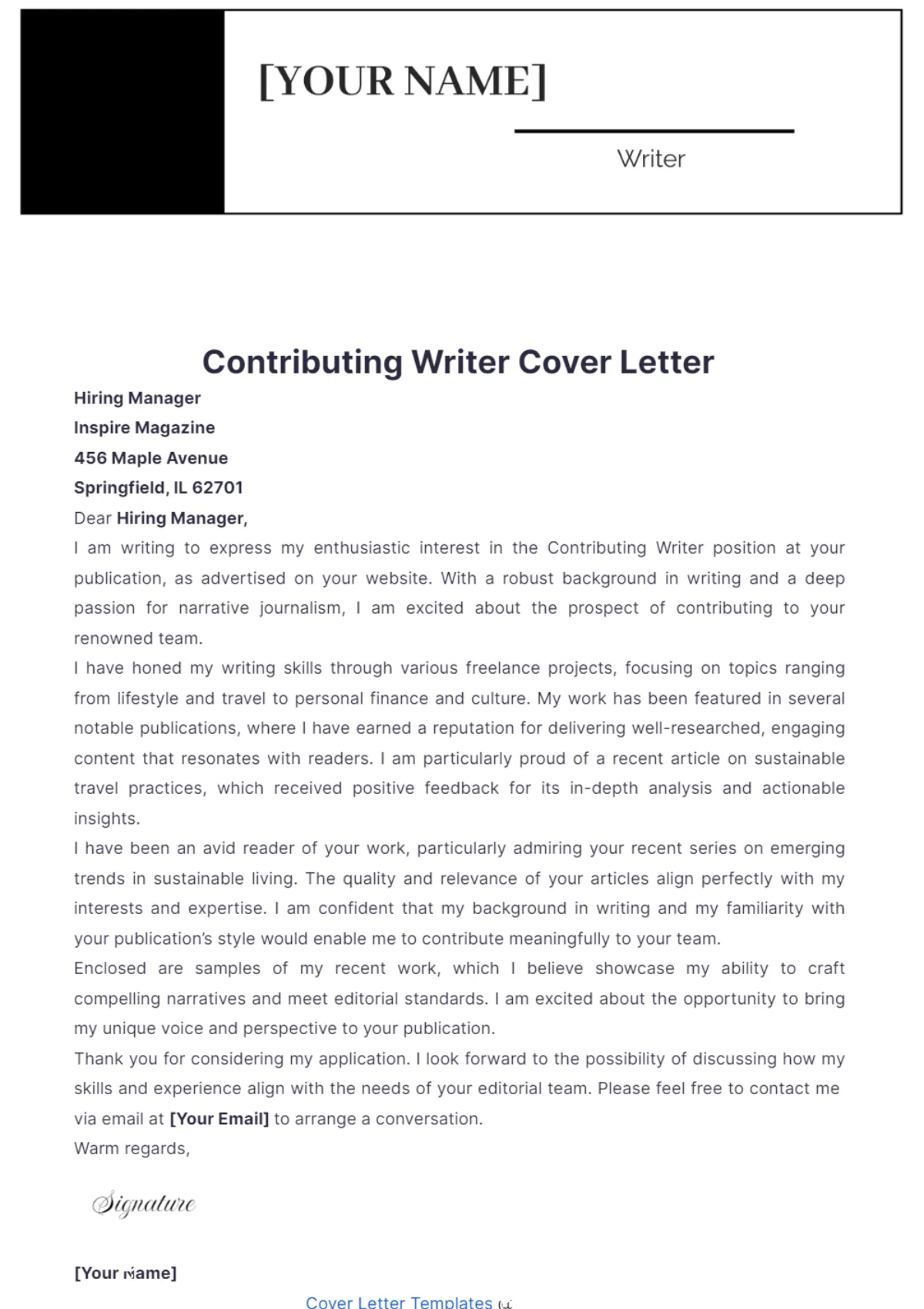
The opening paragraph is your first and often only chance to grab the reader’s attention. Start with a strong hook that immediately captures their interest. State the position you’re applying for and where you found the job posting. Briefly mention your most relevant skill or experience to pique their interest. It should be concise, enthusiastic, and clearly state your purpose. Demonstrate your understanding of the company, showcasing your ability to contribute to their goals. Aim to leave a positive and memorable first impression.
The Body Paragraphs
The body paragraphs are where you elaborate on your qualifications and demonstrate your value to the company. Use these paragraphs to provide specific examples of your writing skills and experience. Highlight your accomplishments, quantifying them whenever possible. Connect your skills and experiences to the specific requirements of the job. Show, don’t just tell, by providing concise examples of your work. Use action verbs to make your accomplishments stand out and to make the text engaging. Tailor your content to align with the job description and the company’s needs to present a clear case.
The Closing Paragraph
Your closing paragraph should reiterate your interest in the position and express your enthusiasm for the opportunity. Thank the hiring manager for their time and consideration. Include a call to action, such as requesting an interview or providing your contact information. End on a positive and professional note, reinforcing your suitability for the writer job. This is your last chance to make a lasting impression, summarizing your key strengths and expressing your commitment to the company’s success.
Formatting and Presentation Tips
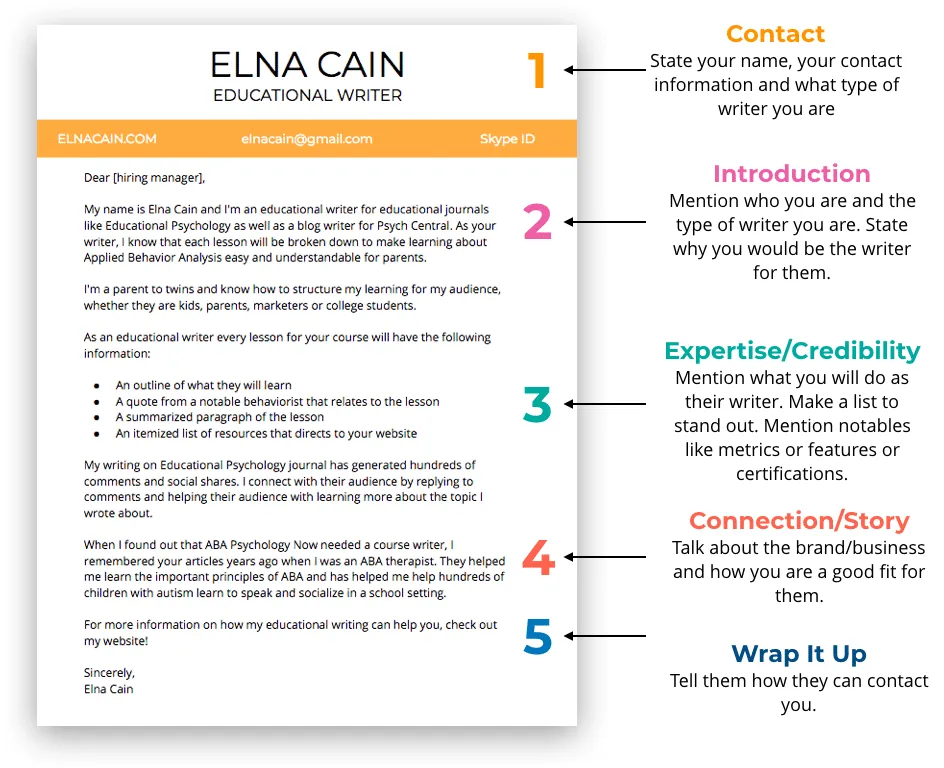
The appearance of your cover letter is as important as its content. A clean, professional format makes it easier for the reader to focus on your qualifications. Proper formatting reflects attention to detail, a critical skill for writers. Careful attention to detail makes you look professional, so it makes the application easier to read and highlights your key strengths. Maintain a consistent style throughout your letter, reflecting your attention to detail and professionalism.
Proofreading and Editing
Proofreading and editing are essential steps in the cover letter writing process. Errors in grammar, spelling, and punctuation can undermine your credibility and damage your chances of getting an interview. Carefully review your cover letter multiple times, ideally with fresh eyes. Use grammar and spell-checking tools, but don’t rely on them completely. Ask a friend, family member, or career advisor to proofread your letter for you. This final check will catch errors you might have missed. Proofreading is essential for a writer job as it is an immediate reflection of your writing skills.
Using Action Verbs
Action verbs make your cover letter more engaging and highlight your accomplishments. Instead of saying “I was responsible for writing articles,” say “I wrote and published over 50 articles per month.” Action verbs convey a sense of initiative, achievement, and dynamism. Choose verbs that accurately describe your actions and accomplishments. Some good examples include: developed, created, managed, implemented, improved, and increased. Using strong action verbs makes your cover letter more memorable and shows potential employers what you can do.
Common Mistakes to Avoid
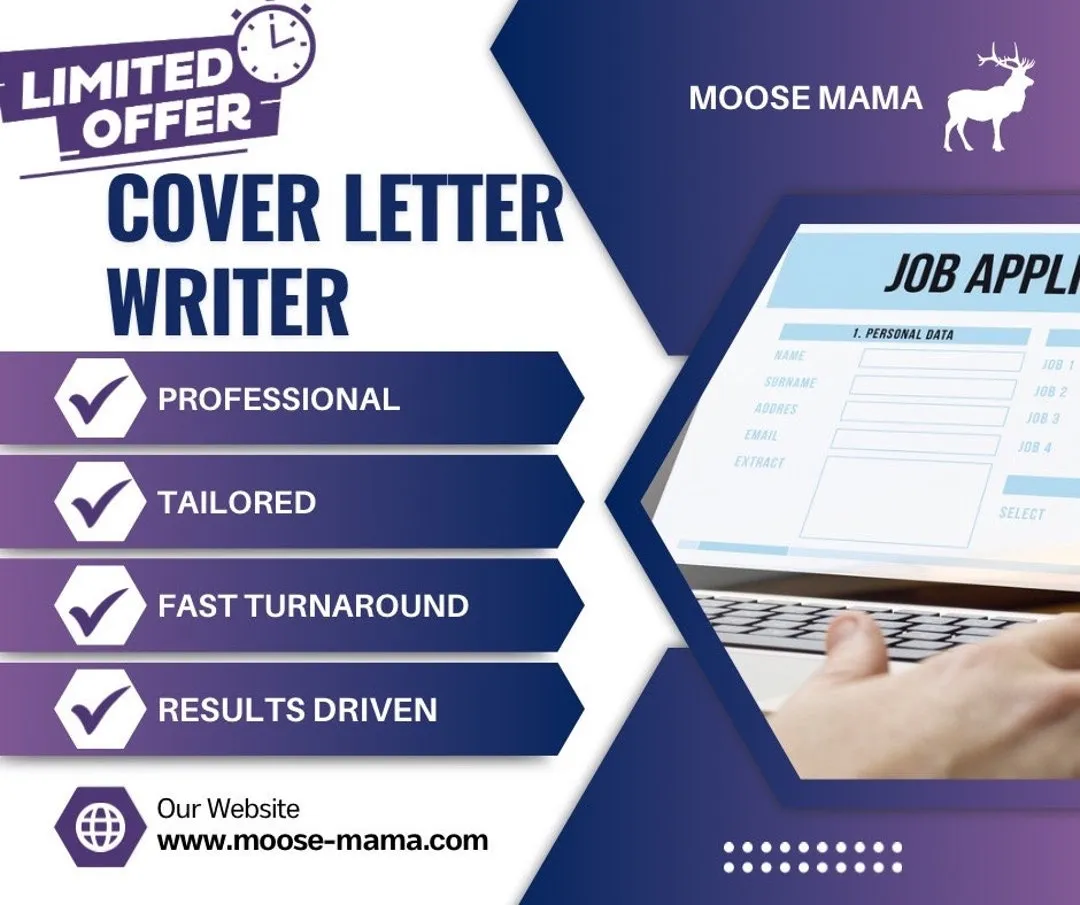
Avoiding common mistakes can significantly improve your chances of success. These mistakes can undermine your credibility and create a negative impression on potential employers. Recognizing and avoiding these errors ensures that your application reflects your professionalism and writing skills. Reviewing your letter for these common issues can prevent these errors from appearing in your application. By avoiding these common mistakes, you increase your chances of making a positive impression on potential employers.
Generic Cover Letters
Sending a generic cover letter is a major mistake. It signals a lack of effort and shows you’re not genuinely interested in the specific job. Tailor your cover letter to each job application, demonstrating your understanding of the role and the company. Generic letters fail to highlight your relevant skills and experience, reducing your chances of getting an interview. Personalization shows you’ve taken the time to understand the company’s needs. It demonstrates your attention to detail and enthusiasm for the opportunity.
Typos and Grammatical Errors
Typos and grammatical errors are unacceptable in a writer’s cover letter. They make you look unprofessional and can cost you the job. Proofread your cover letter multiple times, using different proofreading techniques. Carefully review your cover letter for errors in grammar, spelling, and punctuation. Use grammar and spell-checking tools, but don’t rely on them completely. Ensure your letter is polished, professional, and error-free before submitting. Showing attention to detail is an important quality for any writer.
Ignoring Instructions
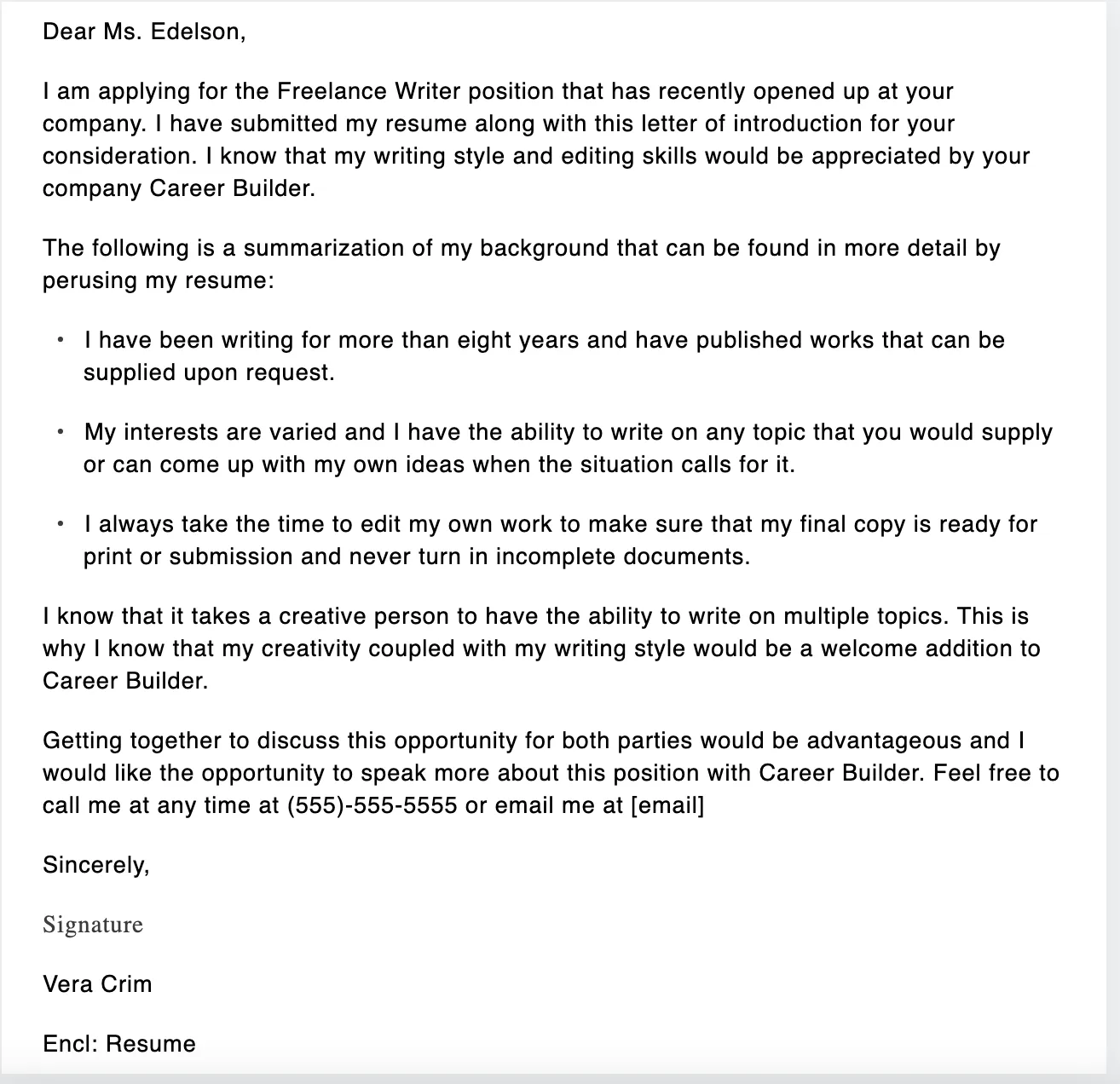
Always follow the application instructions provided by the employer. This includes specific formatting requirements, file types, and submission methods. Ignoring instructions shows you’re not detail-oriented and can result in your application being rejected. Read the job posting carefully and adhere to all the specified requirements. This demonstrates that you pay attention to detail and respect the employer’s process. Failing to follow instructions suggests you’re not a good fit for the job. It also reflects poorly on your professionalism and attention to detail.
